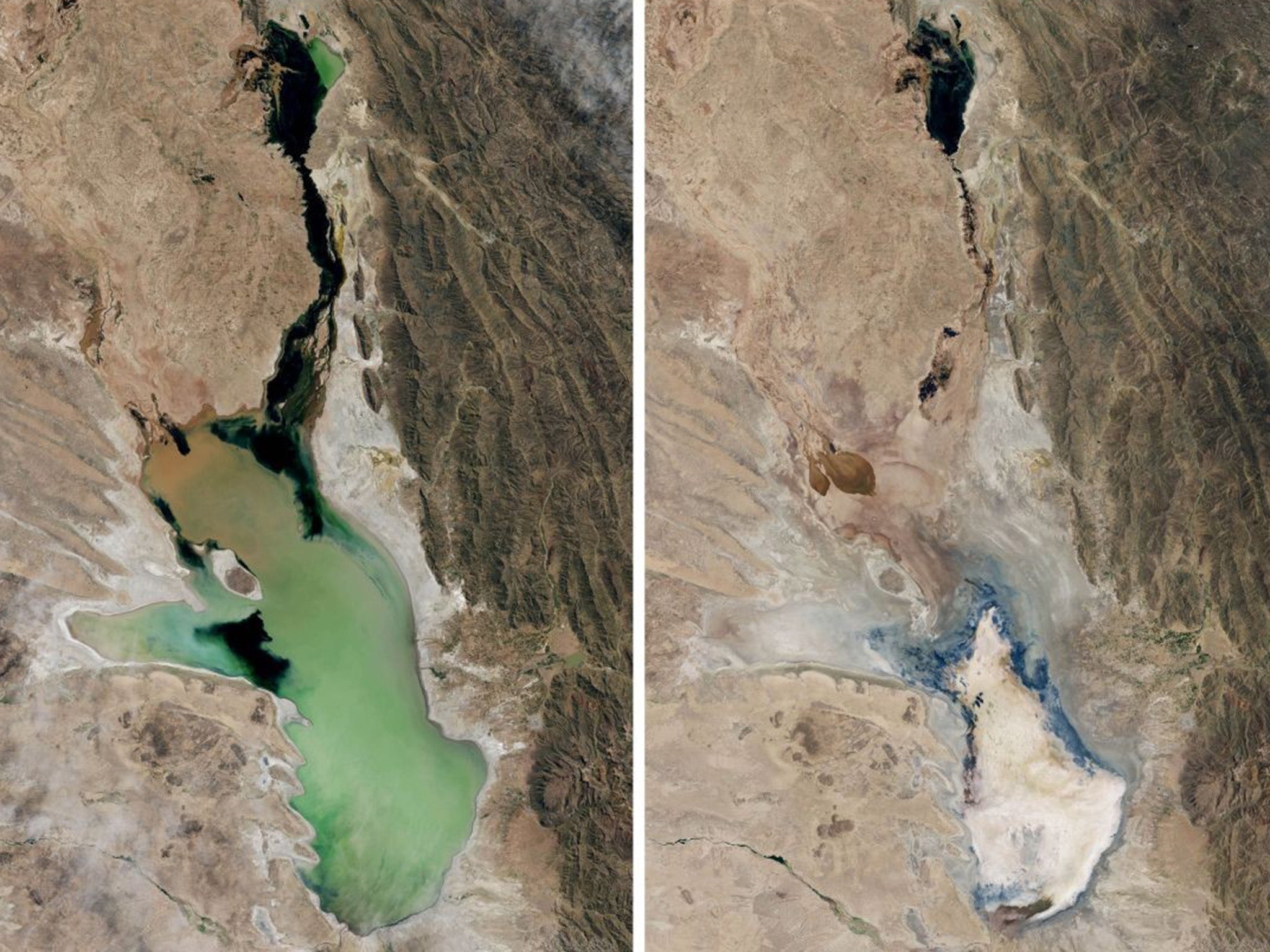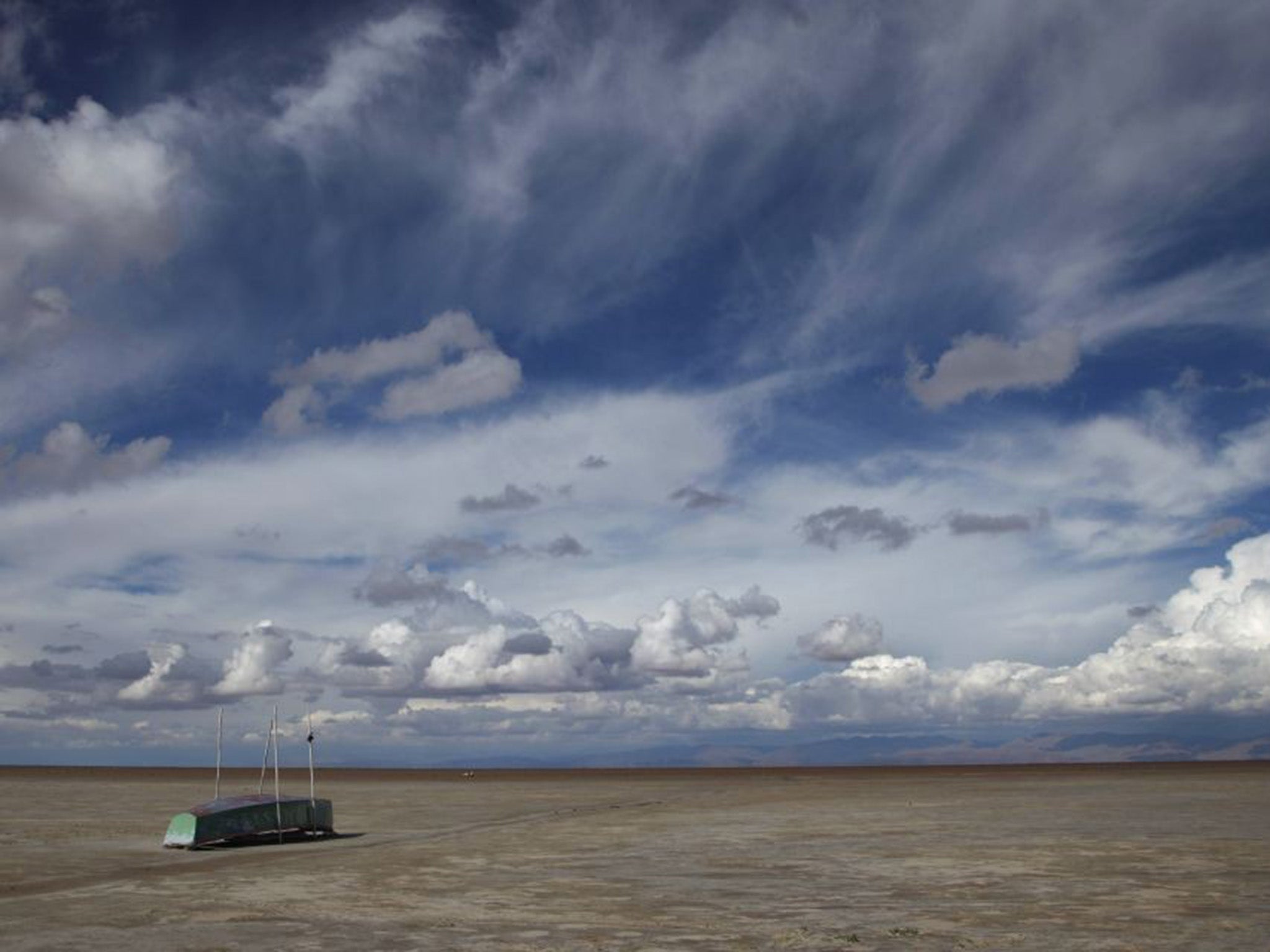Lake Poopo: Bolivia's second largest lake dries up due to climate change, displacing thousands of people
Scientists say the evaporation of the lake serves as a warning about climate change

Your support helps us to tell the story
From reproductive rights to climate change to Big Tech, The Independent is on the ground when the story is developing. Whether it's investigating the financials of Elon Musk's pro-Trump PAC or producing our latest documentary, 'The A Word', which shines a light on the American women fighting for reproductive rights, we know how important it is to parse out the facts from the messaging.
At such a critical moment in US history, we need reporters on the ground. Your donation allows us to keep sending journalists to speak to both sides of the story.
The Independent is trusted by Americans across the entire political spectrum. And unlike many other quality news outlets, we choose not to lock Americans out of our reporting and analysis with paywalls. We believe quality journalism should be available to everyone, paid for by those who can afford it.
Your support makes all the difference.Bolivia’s second largest lake has disappeared, displacing hundreds if not thousands of people who depend on it for their livelihoods.
Lake Poopo was officially declared “evaporated” last month in what scientists have said serves as a warning about climate change.
The lake - which is situated more than 12,000 feet above sea level on the country’s Andean plains - has all but dried up before due to El Nino, but had rebounded to twice the size of Los Angeles.
But scientists say this time recovery may no longer be possible.
Dirk Hoffman, a German glaciologist studying how rising temperatures from the burning of fossil fuels has accelerated glacial melting in the country said the extinct lake “is a picture of the future of climate change”.
Local environmental activists have blamed the government for the evaporation of the shallow saline lake, saying it mismanaged water resources and ignored the pollution spread by tin mining upstream.
They accused the largest state-owned tin mine, Huanuni, of dumping untreated waste in Lake Poopo’s tributaries.

The head of a local citizens' group that tried to save Poopo, Angel Flores, said: "Something could have been done to prevent the disaster. Mining companies have been diverting water since 1982".
While Lake Poopo has suffered El Nino-fueled droughts for millennia, its fragile ecosystem has experienced unprecedented stress in the past three decades.
Temperatures have risen by about 1C while mining activity has restricted the flow of tributaries, increasing sediment.
More than 100 families have been forced to leave the small lakeside village of Untavi over the past three years as the drought accelerated - halving the population.
Former resident Juvenal Gutierrez said there was “no future” in the town.
According to the local government’s office, at least 3,250 people have received humanitarian aid.
It estimates that Lake Poopo is now down to two per cent of its former water level and 75 species of bird have already disappeared from the area.
Additional reporting by AP
Join our commenting forum
Join thought-provoking conversations, follow other Independent readers and see their replies
Comments